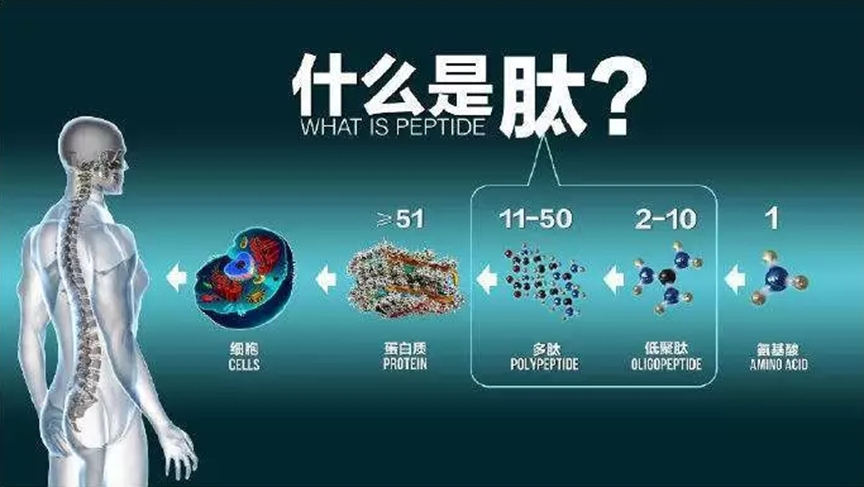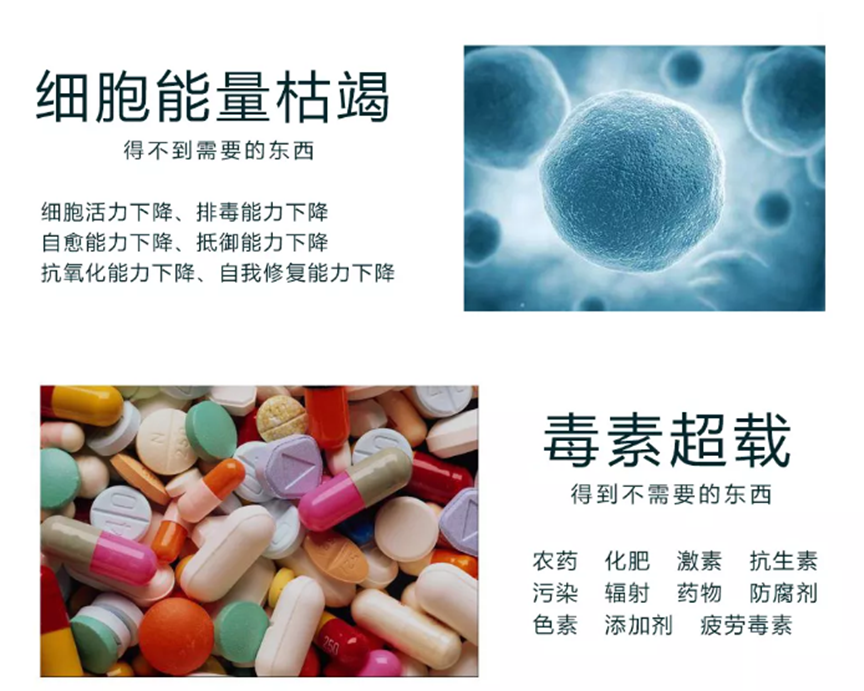


- Home
- Our Company
- R&D Center
- Achievement
- Investment Cooperation
- News
- Contact Us




Publish date :2021.11.29
When many people mention peptides, they first think of it as a health product, which can be supplemented or supplemented like vitamins. How much do you know about peptides?

Peptides are not health products, they can provide nutrients and energy to cells, repair, activate, and promote normal cell work and metabolism. Small molecule peptides are not medicines and cannot replace medicines, but sometimes they can solve problems that medicines cannot solve.



Why should we eat? It is to provide nutrition to the cells. The human body is composed of 60-75 trillion cells. The relationship between the human body and the cells is the relationship between the whole and the part.
If the human body is compared to a house, then the cells are bricks. Only solid bricks can build a stable building. If the cells are damaged and cannot get adequate nutrition, it is like a hollow brick. , Bricks with missing corners, bricks with cutting corners, and houses built with such bricks are bound to be weak.
What is causing the cells to not get nourishment?
1 Unreasonable eating habits: overeating, fast food, late night snacks, junk food.
2 Nutrition loss during cooking: washing, cutting, boiling, frying, frying, and frying.
3 Decline in nutrition of food itself: fine processing, greenhouse, genetic modification, environmental pollution.
What poisoned the cells again?
1 External toxins: sunlight, air, water, food, chemical, radiation, bacterial and viral pollution.
2 Internal toxins: metabolic waste, stress, etc.
When the accumulation of toxins exceeds the liver's ability to detoxify, they will destroy all cells throughout the body. Blood poisoning is called toxemia. Toxemia is closely related to many diseases such as allergies, asthma, skin diseases, cancer, rheumatism, gout, arrhythmia, headaches, and mental problems.
Cell function determines human health. Therefore, only by stimulating the "self-repair and regeneration of cells" in the human body and activating the cells can the body and organs repair and regenerate themselves, delay aging, and stay youthful!
How to activate cells? Simply put, it is to allow every cell to get a comprehensive and balanced nutrition, thereby promoting the repair, activation, and regeneration of the cell to achieve the best state.
The process of cells getting nutrients
Step 1: Food (nutritional supplements, rich in comprehensive and balanced nutrients)
Step 2: Digestive system (digestion, decomposition, absorption of nutrients)
The third step: the circulatory system (transport nutrition)
Step 4: Every cell in each organ of the whole body (using nutrients)
Namely: Nutrients that meet the needs of the human body + Regulate the digestive system + Promote blood circulation + Improve cell vitality = Cell nutrition
A New Source of Cellular Nutrition for Small Molecule Active Peptides
(1) Improve the structure and absorption of the small intestine
Experiments have confirmed that small molecular peptides can increase the height of small intestinal mucosal villi, deepen the depth of crypts, increase the absorption area of intestinal mucosa, promote the development of small intestinal glands, and increase the activity of aminopeptidase, so it can promote the improvement of small intestinal absorption function.
(2) Enhance the body's immunity
Small peptides can improve the body's cellular immune function. It can promote the proliferation of T lymphocytes, enhance the function of macrophages, and enhance the activity of NK cells. Studies have reported that small peptides can also promote the production of necrosis factors.
(3) Lower blood pressure
Angiotensin I is converted to angiotensin II under the action of angiotensin-converting enzyme. This conversion product can enhance the constriction of peripheral blood vessels, thereby increasing blood pressure. Small peptides can inhibit the activity of angiotensin-converting enzyme (ACE), so it can reduce blood pressure.
(4) Blood lipid regulation
Small molecule peptides can effectively regulate blood lipid levels by lowering serum total cholesterol, lowering triglycerides, and lowering low-density lipoprotein cholesterol.
(5) Promote fat metabolism
Small peptides can increase the activity of mitochondria in brown fat and promote fat metabolism; it can also increase the conversion rate of norepinephrine and reduce the inhibition of lipase, thereby promoting fat metabolism.
(6) Antioxidant
Small molecule peptides can increase the activity of superoxide dismutase and glutathione peroxidase, inhibit lipid peroxidation, scavenge hydroxyl free radicals, and help reduce tissue oxidation and protect the body.
(7) Anti-sports fatigue
Small molecule peptides can timely repair the damaged skeletal muscle cells during exercise, and maintain the integrity of the structure and function of skeletal muscle cells. At the same time, it can increase the secretion of testosterone and promote protein synthesis. Human trials have confirmed that small molecule peptides can reduce the PRE level of middle- and long-distance runners after exercise and help reduce post-exercise fatigue.
The health effects of peptides on the human body
Inhibition-inhibit cell degeneration and enhance human immunity.
Activation-activate cell activity, effectively remove free radicals harmful to the human body.
Repair-repair damaged cells in the human body and improve cell metabolism.
Promote-promote and maintain the normal and balanced metabolism of cells.
Copyright © 赢咖6 www.lzsswhjy.com 版权所有